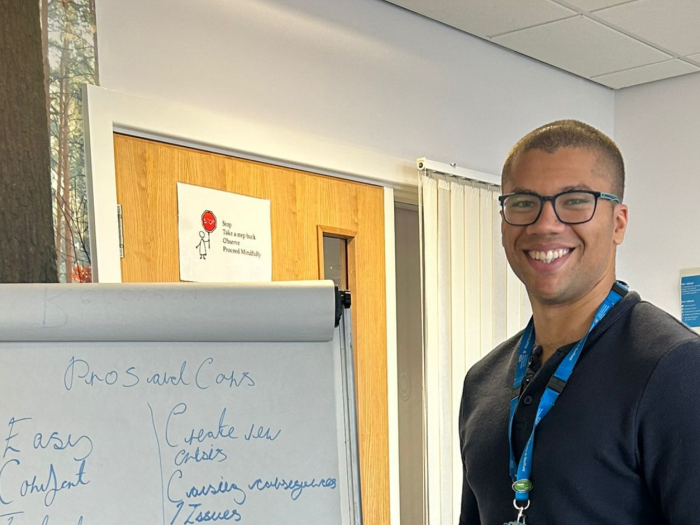Calum Kennedy is a peer recovery worker with our Short Term Educational Programme (STEP).
STEP is a city-wide service providing free educational courses designed to help with a range of mental health conditions. The aim of STEP is to work with people to build their confidence, develop positive coping strategies and help them reach their goals.
Calum is also a service user and combines his experience and professional expertise to help people across Sheffield. In this blog he explains why the job means so much to him.
